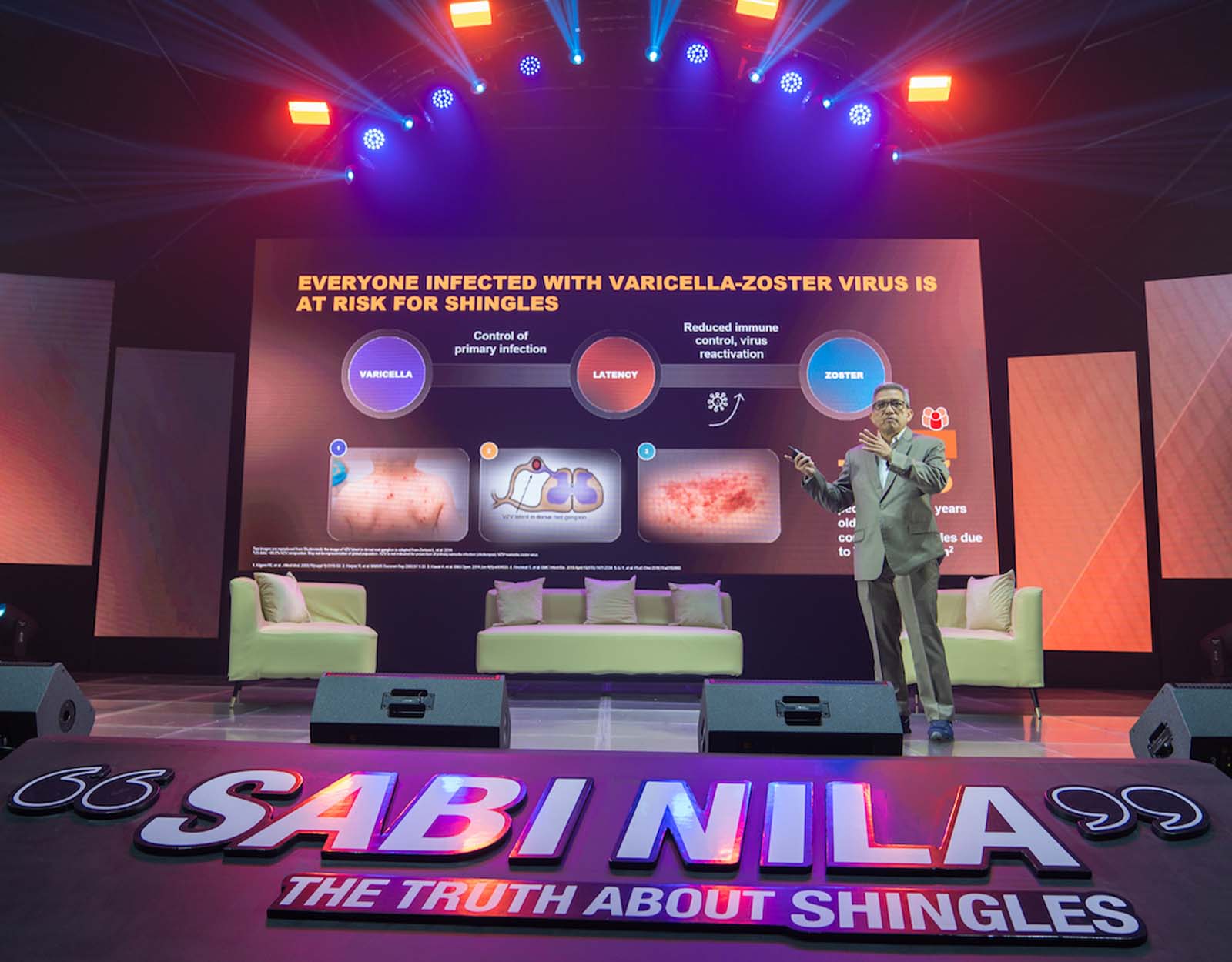Special Features
What We Know About Shingles Awareness Week in 2024
Being aware of the debilitating illness during Shingles Awareness Week can also help keep loved ones safe.
Unless diseases kill, most families would rather not talk about it. Shingles is one such disease—nobody likes talking about how they felt as if their “nerves were on fire,” how “there was a blade tearing their muscles from the inside,” or how their lives had to be put “completely on hold.”
Even renowned journalist Karen Davilla recounted her two battles with Shingles during the event to commemorate Shingles Awareness Week, recalling the shame and depression that came with the disease. “I would not want anyone to experience that [shingles],” the journalist mom of two admitted.

What is Shingles?
“Dew drops on a rose petal”—that is how it appears on the skin according to Dr. Rontgene Solante and dermatologist Dr. Gaile Robredo-Vitas.
Shingles may look like a typical rash but it behaves differently. Rashes are itchy and often a surface issue, remedied by creams, soap, and water.
However, Shingles buries deep into the nerves. As a remnant of the Chickenpox virus, it usually stays hidden among the nerves. Viruses, unlike bacteria, don’t disappear with antibiotics. They turn off and on, kind of like a light bulb with a switch. Unfortunately, Shingles’ “switch” is a weakening immune system.
“There are some things that can make you prone to it. Some include AIDs, diabetes, and even age can weaken your immune system,” Dr. Solante added. “This is why Shingles usually appear in adults that are 50 and above.”
Unfortunately, there’s no way of fully knowing that we have Shingles. It usually starts with pain before the blisters come out.

Why do we need Shingles Awareness Week? It doesn’t kill us!
Although it’s not fatal, the pain can interfere with our daily routines. Even seeing Shingles on our bodies (even if it’s just in a small area), disgusts us. The liquid-filled bubbles on our skin make us feel deformed—hideous even. It can be incredibly isolating especially when we’re taking various medications to manage the symptoms.
However, there are more severe cases. Since Shingles attacks the nervous system, if the rash presents near the eye, it can make one blind.
It doesn’t help that some people still believe that because it shares the same virus type as chickenpox (varicella), they think it’s contagious. “It’s not considered contagious,” Dr. Solante reassured. “To get Shingles, we need to come in contact with the liquid in the rashes.”
But this doesn’t mean we can’t get Chickenpox from those who have Shingles. The former is still activated and highly infectious, which is why we have vaccines to prevent it and anti-virals to deal with the disease. But most of all, because Shingles can depress us, knowing what it truly is can help us find proper ways to support those who are afflicted.

Is there a way to prevent Shingles?
Like COVID-19, Shingles has a vaccine and it requires two shots. Since the disease is more likely to present itself in people who are 50 years and above, the two shots make sure that our immune systems have all the material they need to recognize the disease and fight back. Having the vaccine for chickenpox also serves as a form of protection since they’re the same virus – varicella zoster.
However, immunity to chickenpox doesn’t mean we won’t get Shingles later on. It can still rear its ugly head even with a vaccine although a lot less severe than it normally would be. If you feel you might have Shingles, consult your doctor. With a doctor’s advice, you’ll at least find a way to make your family worry less.
More about diseases?
Children CAn Beat It: Pediatric Cancer Patients Graduate!
Trishka Puno Samonte: A Mom’s Fight Against APAS and Birth Trauma
Why We Should Protect Our Kids and Babies From Pneumonia
To know more about Shingles, check out this website.





